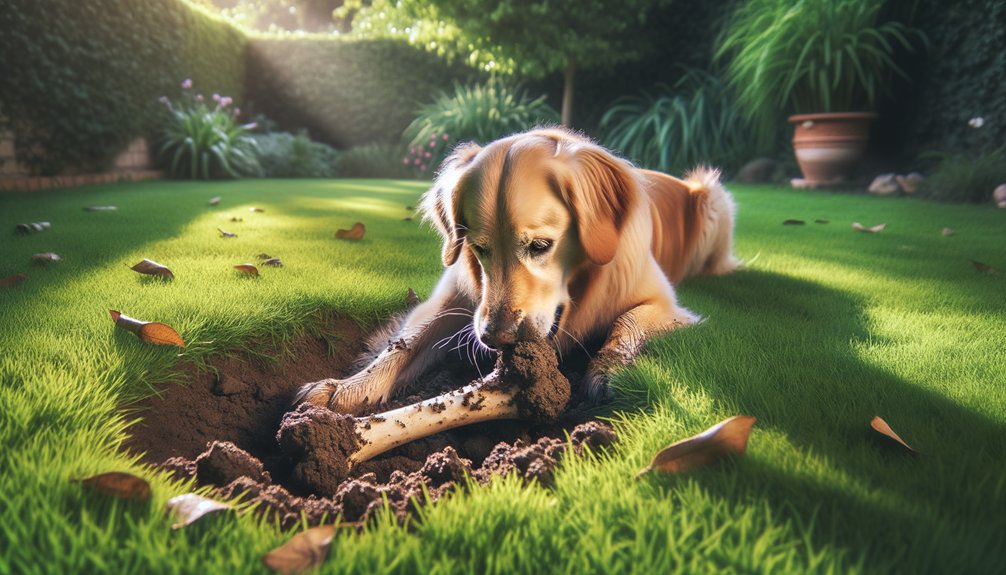AI-assisted
Last updated on May 21, 2025
Get ready to uncover the surprising reasons behind your dog’s bone-burying behavior and what it reveals about their instincts and emotions. When we observe our dogs burying their bones, it’s fascinating to contemplate the instinctual behaviors at play. This action isn’t just a quirky habit; it reflects their deep-rooted evolutionary history. By examining this behavior, we can gain insight into our dogs emotional connections and their need for security. What might this mean for the way we interact with them? Let’s explore the implications of this instinctive behavior together.
Have you ever wondered why your dog buries his bone? It’s a behavior that many of us have observed, yet it can leave us scratching our heads. In understanding this instinctual behavior, we gain insight into our furry companions’ minds and their evolutionary backgrounds. This act of burying food is tied to survival instincts that our dogs inherited from their wild ancestors. Even though our pets are far removed from the wild, some of these instincts remain deeply embedded in their behaviors.
Understanding why dogs bury their bones offers a glimpse into their instincts and evolutionary history, revealing their deep-rooted survival behaviors.
When we think about why dogs bury bones, we can trace this behavior back to their need for food preservation. In the wild, scavenging for food is a daily challenge. Dogs would often find a surplus of food, like a fresh kill, and bury parts of it to guarantee a future meal. By hiding food, they protected it from other scavengers and prolonged its availability. Even domesticated dogs, with their bowls filled daily, exhibit this instinctual behavior. It’s as if there’s a little voice in them that says, “What if I need this later?”
We can relate to this instinct on some level. Think about our own behaviors regarding food and resources. Many of us save leftovers or stock up on essentials during sales. Just like us, dogs also showcase their innate understanding of resource management. Although they mightn’t consciously think about the long-term implications, their instinct drives them to prepare for potential scarcity.
When our dogs bury their bones, they’re not just playing; they’re reflecting a part of their identity that connects them to their ancestors. This behavior can also indicate a strong emotional connection to the bone itself. For many dogs, a bone isn’t just a snack; it’s a treasure, something to cherish and protect. By burying it, they’re expressing a natural urge to safeguard their resources.
As dog owners, it’s important for us to recognize and appreciate these behaviors. When we see our furry friends engaging in this instinctual behavior, we should understand it as a reflection of their innate nature rather than a quirky habit. This perspective fosters a deeper bond between us and our dogs, as we come to appreciate the complexities of their instincts.
In a way, we’re all pursuing security in our lives, just as our dogs do. Understanding why they bury their bones can help us create a more nurturing environment that respects their instincts. We can provide them with safe spaces to dig and explore, allowing them to engage with their natural behaviors.
Conclusion
To sum up, when our dogs bury their bones, they tap into their instinctual behaviors that have evolved over generations. This act not only highlights their need to preserve resources but also reflects an emotional attachment to their treasures. By understanding and respecting this behavior, we can foster a deeper bond with our furry companions. Creating an environment that acknowledges their natural instincts can lead to a more fulfilling and harmonious relationship with our dogs.



